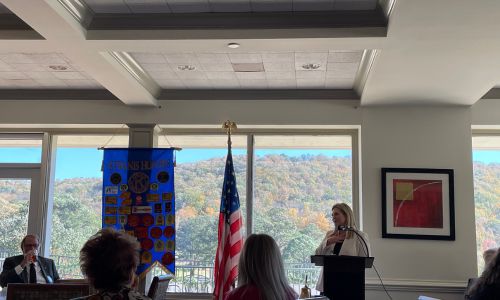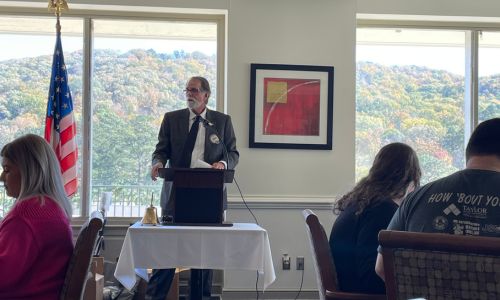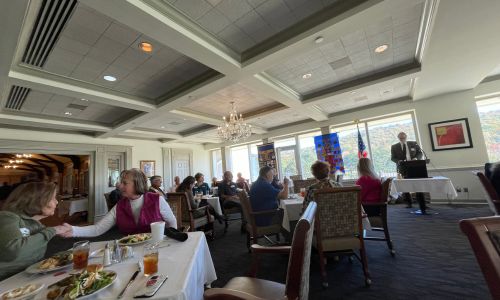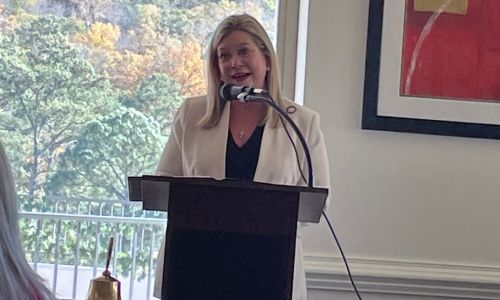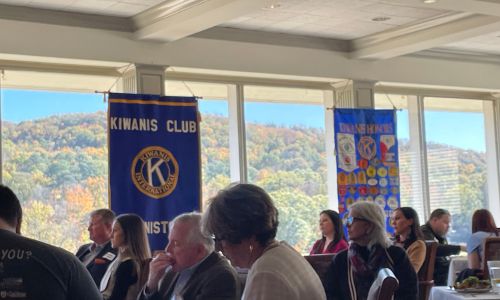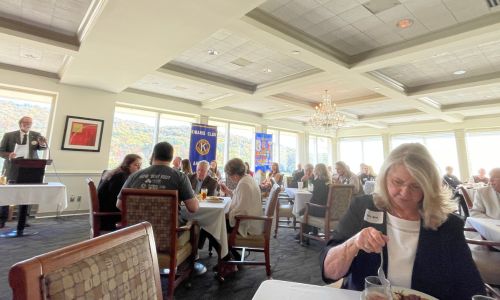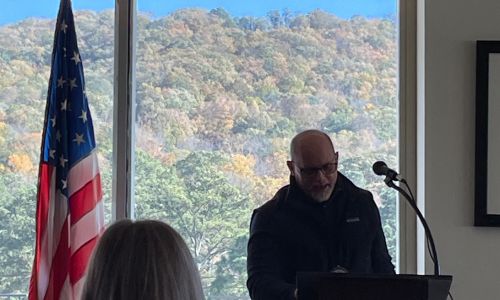Anniston, AL – On Thursday, November 21, the Anniston Kiwanis Club and the Calhoun County Farm-City Week Committee hosted a luncheon at the Anniston Country Club to celebrate National Farm-City Week. The event, aimed at bridging the gap between rural and urban communities, featured Twinkle Cavanaugh, president of the Alabama Public Service Commission, as the keynote speaker.
Cavanaugh, a long-time advocate for conservative governance and sound energy policy, addressed attendees with a mix of personal anecdotes and professional insights. She emphasized the vital contributions of farmers to American society, stating, “Farming feeds us, clothes us, and essentially sustains us. We wouldn’t be here without our farmers, especially during this season of Thanksgiving.”
The luncheon highlighted the ongoing partnership between urban and rural sectors, with special recognition given to local 4-H and FFA programs. Several students and their advisors were in attendance, showcasing the future of agriculture in the region. The committee expressed its gratitude to the Kiwanis Club for supporting these initiatives, which foster leadership and agricultural education among youth.
Cavanaugh reflected on her personal ties to agriculture, sharing memories of summers spent on her grandparents’ farms. “While I didn’t grow up on a farm myself, the values of hard work and community that farming instills have stayed with me throughout my life,” she remarked.
Cavanaugh also detailed the responsibilities of the Public Service Commission, which oversees utilities such as Alabama Power and Spire Gas. She emphasized the importance of ensuring affordable and reliable energy for Alabama’s citizens, utilizing a mix of resources, including coal, natural gas, hydro, wind, solar, and nuclear energy.
Her remarks extended to the evolving role of the Commission, which now regulates ride-sharing services like Uber and Lyft. “Our job is to adapt to changing needs while maintaining public safety and fair practices,” she explained.
Dr. David West, a local advocate for agricultural education, and legislators Representative Randy Wood and Senator Keith Kelley were acknowledged for their efforts in supporting the community. Cavanaugh praised their dedication, noting, “These leaders work tirelessly to bring about positive change for Calhoun County and the state of Alabama.”
As the event concluded, Cavanaugh urged attendees to continue educating others about the significance of Farm-City Week. “It’s up to us to ensure future generations understand and appreciate the vital role of farmers in our lives,” she said.
During the Q&A portion, attendees raised various insightful questions, sparking detailed discussions on critical topics. Here are some key moments:
One attendee, a 20-year Navy veteran, noted the longstanding safety record of nuclear-powered naval ships, prompting a discussion about the barriers to developing nuclear power plants. The speaker highlighted the challenges posed by lengthy permitting processes, which span multiple presidential administrations. This uncertainty often deters investment in nuclear projects, despite their potential to deliver low-cost energy once operational.
A question about the cost of solar energy compared to other power sources led to an explanation of its limitations. The speaker described solar power as an “addendum” to traditional energy sources like coal, natural gas, nuclear, and hydroelectric power. They emphasized the importance of reliable, on-demand energy sources, especially during high-demand periods, such as cold winter mornings when Alabama residents heavily use heat pumps and other appliances.
Another attendee asked about the effects of environmental regulations on energy production. The speaker discussed coal ash disposal policies, explaining the shift from capping coal ash ponds in place to transporting the waste—a costly adjustment mandated by changing EPA guidelines. This sparked a broader conversation about balancing environmental protections with the practical needs of energy infrastructure.
A question about food safety and the regulation of toxic chemicals at the agricultural level brought a shift in focus. The speaker noted that while food-related issues fall outside their direct purview, energy-related environmental standards have significantly improved since the 1970s. However, they expressed concerns about current regulatory trends that may prioritize the phasing out of fossil fuels over practical, cost-effective solutions.
These exchanges underscored the audience’s engagement and the broad spectrum of topics impacting Alabama’s energy landscape and environmental policies. Commissioner Cavanaugh concluded with a warm invitation to continue the dialogue, expressing gratitude for the opportunity to engage with the community. The luncheon served as a reminder of the importance of unity between rural and urban communities, with the shared goal of fostering growth, education, and understanding.
